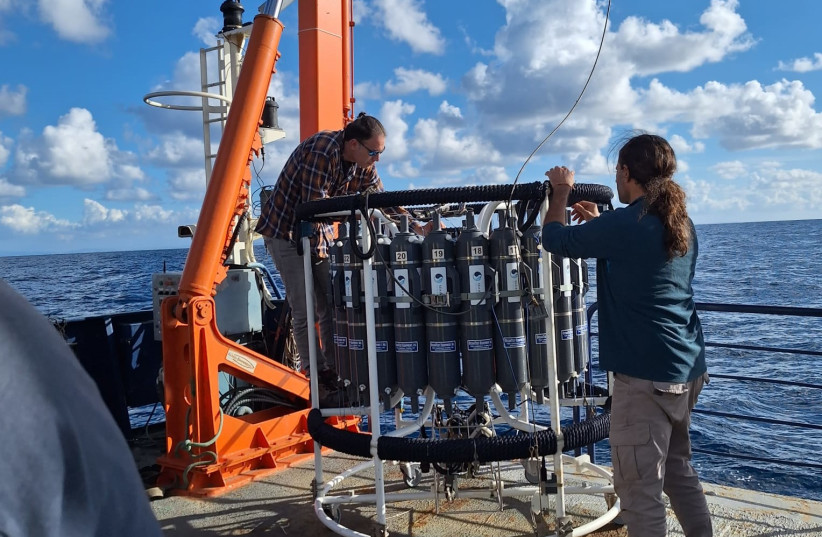The Mediterranean Sea's upper layer is warming significantly faster than the global forecast, according to a report issued Monday.
The report, issued by Israel's energy and environmental protection ministries and the Oceanographic and Limnological Research Institute, said that the upper layer is warming at 0.13 degrees Celsius yearly because of global warming and the sea's smaller size than the oceans. That rate is much higher than the worldwide forecast of 0.055 to 0.069 degrees Celsius annually by the Intergovernmental Panel on Climate Change (IPCC).
Moreover, the report showed a sea level rise of about 13.8 centimeters between 1992 and 2022, with an average rate of 4.6 millimeters per year – also faster than the global rate published by the IPCC at 3.69 mm per year. The authors said this is caused by the warming of sea waters and melting ice caps.

Climate change and human impacts on the Mediterannean<br><br><br>
Alon Zask, director of the Oceanographic and Limnological Research Institute, said, "The current report reflects worrisome trends resulting from climate change and human impacts on the environment witnessed in recent years. Among other things, the annual report findings indicate the ongoing warming of the Mediterranean in our region and various pollution trends that worsen with time."
The report showed that the Mediterranean ecosystem is experiencing changes because of both climate change and increased human activities near and at sea. For example, the expansion of Israel's ports and the gas industry's development over the past decade have impacted the water. The study also highlighted the impact of pollution on marine organisms, including introducing invasive species.
The report acknowledged some positive developments, notably the reduction in sea pollutants. The report noted that the primary impact on Israel's marine area stems from human activities in Israel, meaning that reducing human pressure at the local level could significantly improve the state of the marine ecosystem and better enable it to meet the challenges from climate change that are on the horizon.
However, the report shows stark statistics regarding plastic: Plastic constitutes 90% of waste on Israel's central and northern beaches and around 60% on southern shores.
Remnants of the COVID-19 pandemic persisted throughout 2022, with disposable gloves and masks continuing to litter the coastline. Locally produced plastic waste dominated the central and northern beaches, comprising 50%-90% of identifiable items like packaging and bags. On the other hand, in southern regions, external sources contributed significantly to the waste, notably from ships and currents originating from the southwest.
Moreover, the levels of floating microplastics observed at coastal monitoring stations surpassed those recorded in the central Mediterranean, the report said.
In Israel, the concentration stood at 1.2 items per square meter, higher than the approximately 0.7 recorded in Italy. These microplastics closely resemble the natural food of marine animals, often leading to ingestion. Marine creatures cannot digest plastic, and the toxic additives from the plastic accumulate in their tissues, ultimately impacting humans as these toxins make their way up the food chain and onto our plates.
Finally, the report highlighted the presence of sewage from the Gaza Strip on Israel's southern shores and even in the Ashkelon desalination plant. The Environmental Protection Ministry said it has been monitoring the flow of sewage from Gaza since the beginning of the Hamas-Israel war and that it has continued to increase. These findings were transferred to the Defense Ministry.
The Environment and Climate Change portal is produced in cooperation with the Goldman Sonnenfeldt School of Sustainability and Climate Change at Ben-Gurion University of the Negev. The Jerusalem Post maintains all editorial decisions related to the content.
